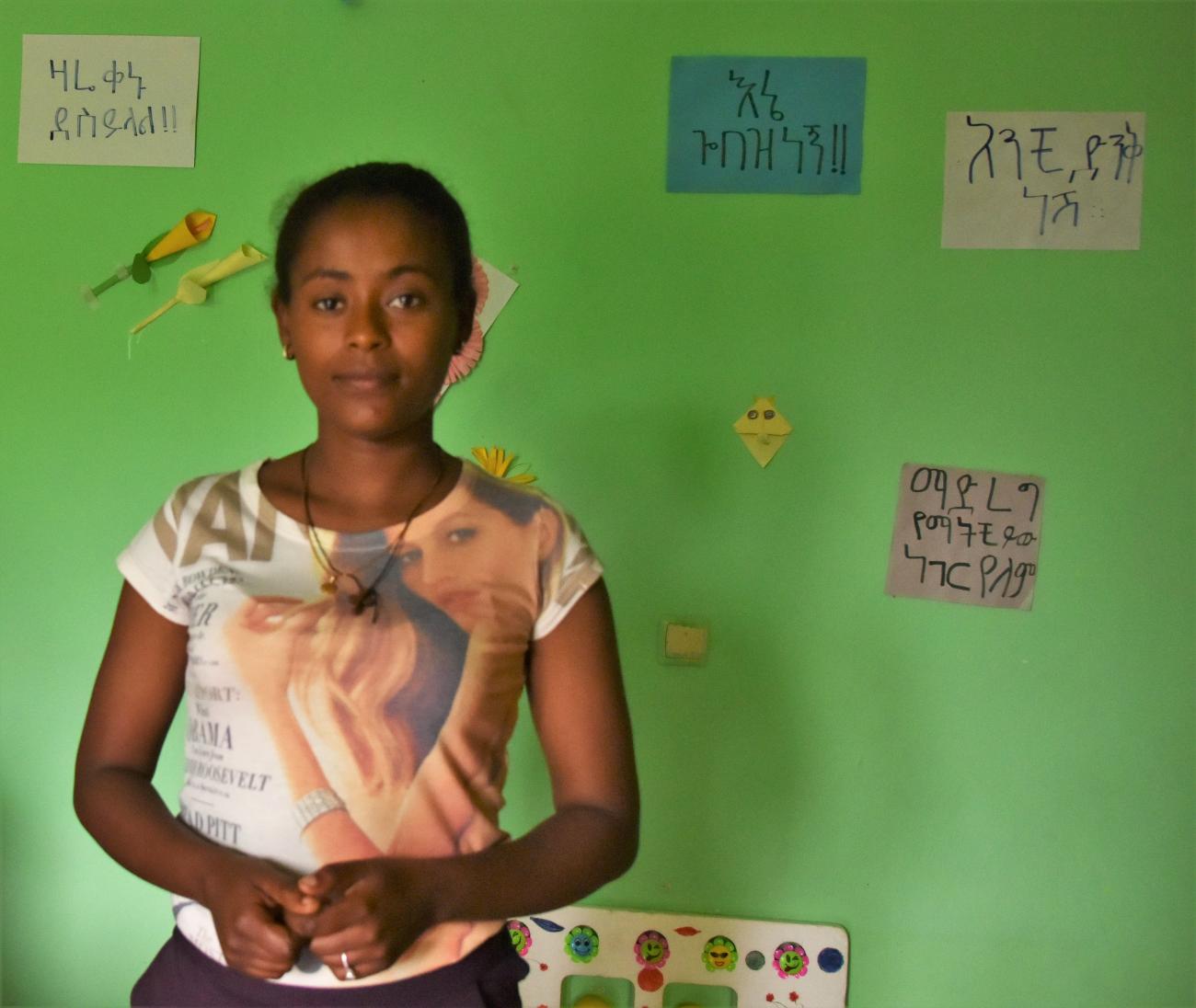UN Women, partners rehabilitating survivors of conflict-related sexual violence

Muzeyen Jemal*, a 19-year-old young woman, was working as a housemaid in Woldia to support her family who live in rural Kebele in the nearby district.
She was going back home from the market when she was attacked and raped. “I told no one because they threatened me. I had no sexual experience before, so I thought nothing would happen,” she said. She kept working until it was obvious that she gained a lot of weight and kept having physical changes.
Her employers took her to the hospital, she talked about the sexual violence she endured for the first time. She was brought to a safe house for survivors of sexual violence opened by the Association for Women’s Sanctuary and Development (AWSAD) with support from UN Women Ethiopia. The safe house was established to rehabilitate and reintegrate women and girl survivors of conflict-related sexual violence (CRSV) and sexual gender-based violence (SGBV) because of the Northern Ethiopia conflict. It was set up to support survivors through the provision of comprehensive services, including accommodation, meals, medical support, counselling, and livelihoods. After she found out about her pregnancy, what she asked for was to get an abortion. Unfortunately, it was too late for that. It was 20 days since she gave birth when we met her at the safe house in August 2022. She is staying at the shelter and not yet decided what to do next.
Eyerusalem Amsal, a counseling psychologist at the safe house said making survivors speak about the sexual assault is the difficult part at first. They have individual and group therapy sessions for survivors as well as art and music therapy to make them forget about the trauma they have been through and see there is hope. Having others with similar experience and socializing with them also helped them open-up.
“I know I am doing important work helping these women be themselves again. I feel grateful I got to help and felt I belong here” said Eyerusalem on doing a challenging yet important job.
Yetimwork Ayalew, Coordinator of the Safe House in Woldia said the shelter for survivors was opened on January 27th, 2022, just after the Tigrayan forces left the area and in response to the urgent need for support for survivors of CRSV/GBV as a result of the conflict in the area. She said, “many survivors needing support started coming to us all the way from Dessie, another city in South Wollo, where we had another safe house but was in full capacity”.
Yetimwork mentioned that 416 survivors have been rehabilitated by the services at the safe house. Unlike other shelters run by AWSAD with support from UN Women Ethiopia, there is no legal redress or bringing the perpetrators to justice which can also bring closure to the survivors.
A joint assessment by Ethiopian Human Rights Council and Office of the High Commission for Human Rights disclosed that hundreds of women were sexually violated by all actors involved in the conflict in Northern Ethiopia.
This project, which is part of the CERF global grant, aims to ensure that women and girls who have experienced/are experiencing GBV or are at risk of GBV benefit from provision of and access to quality services and are empowered to increasingly engage in decision-making and leadership in GBV response, mitigation, and prevention.
UN Women is working to contribute to protection and empowerment of crisis-affected women and girls in Amhara, Afar, and Tigray regions of Ethiopia and scaling up partnerships with local women-led organisations (WLOs) / women rights organisations (WROs).
*Names changed


